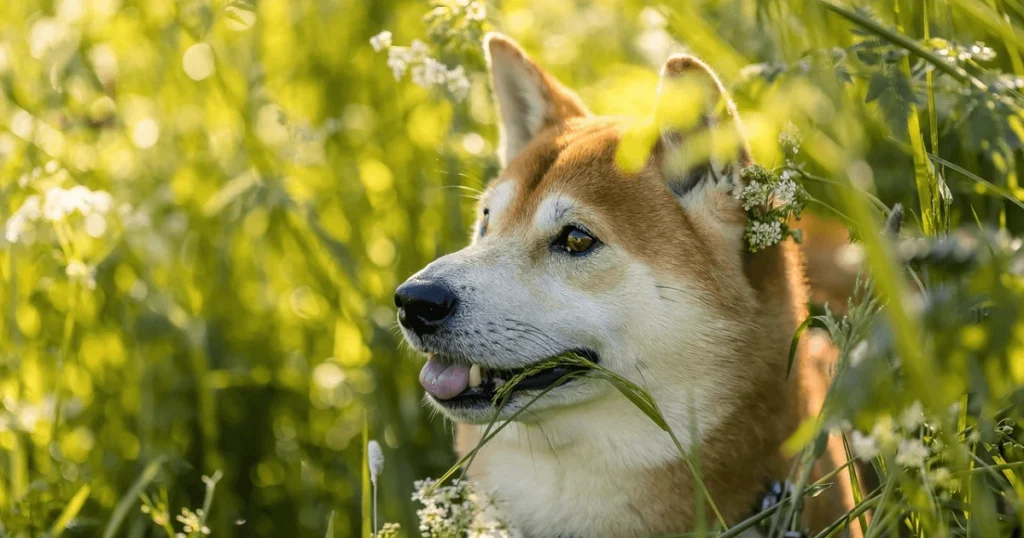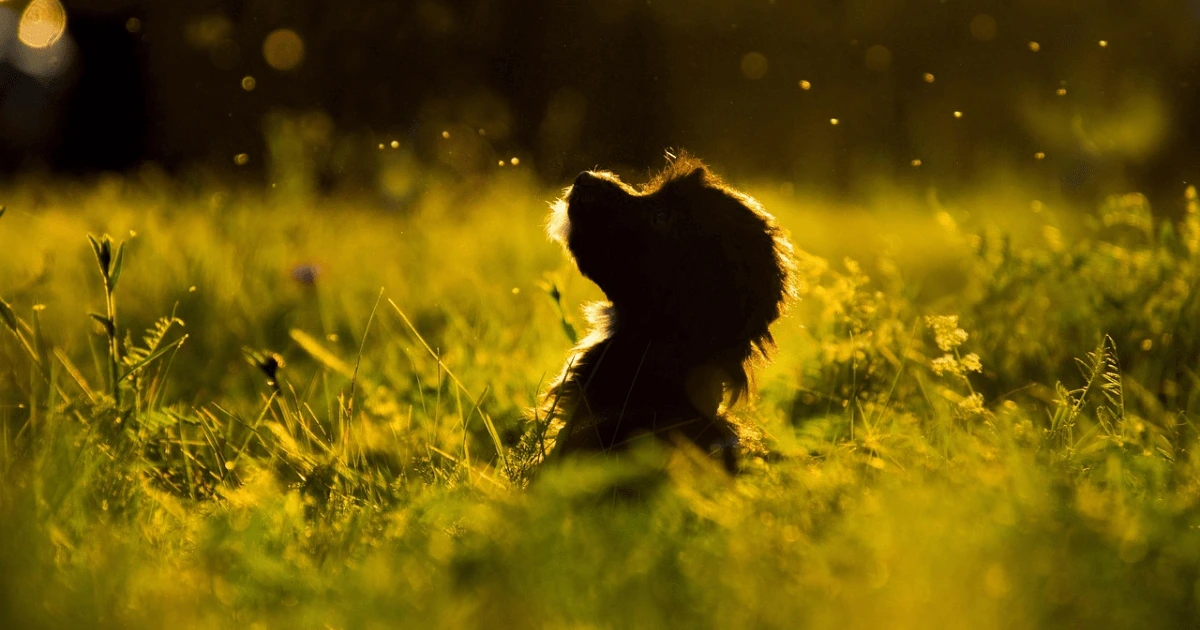Why Is My Dog Suddenly Eating Grass Like Crazy?
Table of Contents
🐾 Introduction
Your dog bolts outside and starts mowing the lawn like it’s buffet day at a salad bar. Cute? Maybe. But when it’s sudden—and frantic—it raises questions.
If you’re thinking, “My dog suddenly eating grass like crazy?” you’re not alone. This odd behavior often catches pet parents off guard and can spark concern: Is it harmless, or a sign something’s wrong?
Dog eating grass might seem like a harmless quirk, but it can point to a deeper issue—especially if the behavior is new or intense. In this guide, we’ll break down the why, when, and what‑to‑do of grass bingeing so you can keep your pup safe and healthy.
My Dog Suddenly Eating Grass Like Crazy? Here’s What It Means
If you’re asking, “Why is my dog suddenly eating grass like crazy?” you’re not alone. This isn’t just a quirky habit—it might signal boredom, tummy trouble, or something more serious. Read on to learn when to chill and when to call the vet.
Is It Normal If My Dog IS Suddenly Eating Grass Like Crazy?
Yes—grass-eating is a fairly normal behavior for many dogs. In fact, most vets consider occasional grass nibbling part of the canine experience. Some dogs simply enjoy the texture, the taste, or the chance to do something “wild” in their own backyard.
But here’s the key:
There’s a big difference between casual grazing and sudden, frantic grass consumption.
A few bites here and there? Usually no big deal.
But if your dog is suddenly obsessed, sprinting to the grass like it’s their last meal, and eating it with intensity—they might be trying to tell you something. This isn’t just quirky behavior. It could be a sign of discomfort, dietary gaps, or even anxiety bubbling under the surface.
And that’s exactly what we’re diving into next.
Common Reasons Dogs Suddenly Eat Grass Like It’s Going Out of Style
When your dog starts chowing down on grass like it’s filet mignon, it’s not random. There’s usually a motive behind the madness. Here are the top reasons behind sudden, excessive grass-eating—and what each one might mean:
🌿 a. Upset Stomach or Nausea
One of the most talked-about theories: dogs eat grass to self-soothe an upset tummy—or to induce vomiting. It makes sense in theory: eat rough blades, trigger gag reflex, purge the problem.
But the data tells a more nuanced story:
📊 Less than 10% of dogs appear sick before eating grass.
Only about 25% vomit afterward.
So while nausea might explain some cases—especially if your dog is pacing, drooling, or acting uncomfortable before their lawn binge—it’s not the whole picture. If this is a new and frantic behavior, though, the stomach might still be the first place to look.
🌾 b. Dietary Deficiency or Fiber Craving
Another likely culprit? Diet gaps—especially fiber.
Dogs lacking roughage in their meals may turn to grass as a crunchy solution. If your pup recently switched to a grain-free or low-fiber diet, that sudden craving for greenery might be their body’s way of saying, “I need more plant stuff.”
Bonus clue: some dogs stop eating grass altogether once their diet is adjusted. So if your furry friend’s menu has changed recently, this is a smart place to start your detective work.
🧠 c. Boredom, Anxiety, or Attention-Seeking
Sometimes, it’s not physical—it’s emotional.
A bored dog is a creative dog. If your pup’s walks have shortened, your schedule’s shifted, or they’re left alone more than usual, grass-eating might be a behavioral outlet. It’s a form of displacement—chewing the lawn when they’re really craving play, purpose, or peace of mind.
Some dogs even figure out that grass-eating gets a reaction. And boom: it becomes an attention-seeking trick.
🧬 d. Instinct, Habit, or Just Plain Taste
Let’s not forget: your dog’s ancestors weren’t exactly picky eaters. Wild canines regularly consumed plant matter via prey’s stomachs. That instinct? Still wired into modern dogs.
Some pups simply enjoy the taste or texture of fresh grass, especially during spring or after rain when it’s cool and tender. For others, it could be a mild form of pica—a condition that drives animals to eat non-food items compulsively.
Dog Eating Grass and Vomiting? When to Worry

Let’s be real—most dogs sneak a little lawn snack now and then. But when your pup goes from casual grazer to full-on grass-obsessed, it’s time to pay attention.
Here’s when grass-eating becomes less “quirky” and more “call the vet.”
🚨 Red Flags That Need a Vet’s Eye
- Frantic or obsessive eating:
If your dog is laser-focused on inhaling grass like their life depends on it, especially if it comes out of nowhere, that’s a potential sign of distress. - Other symptoms tag along:
Watch for vomiting (especially more than once), lethargy, diarrhea, abdominal pain, drooling, or unusual posture. These symptoms paired with grass-eating could point to a gastrointestinal issue or poisoning. - Sudden behavior change:
A dog that never touched grass before but suddenly can’t stop? Something has shifted internally—physically, emotionally, or both. - Skipping meals + eating grass = 🚩
If your pup is ignoring their kibble but obsessively chewing grass, that’s not just a phase. It could be nausea, pain, or something deeper.
Dog Eating Grass and Not Eating Food – A Red Flag?
When a dog eats grass and refuses food, it’s not just quirky behavior—it could be a sign of illness. Dogs sometimes self-medicate with grass to relieve nausea, but skipping meals altogether might point to underlying issues like gastrointestinal distress, pancreatitis, or even poisoning. Don’t ignore this combo—it’s time to call the vet.
💡 Pro Tip Box:
Mild munching = probably fine.
Full-blown frenzy = time to investigate.
The Hidden Dangers of Grass-Eating
Grass may seem harmless—it’s just plants, right? But when your dog turns into a four-legged lawnmower, not all greens are created equal. Here’s what could be lurking in that innocent-looking patch of grass:
⚠️ Treated Lawns = Toxic Risks
Many lawns are sprayed with fertilizers, herbicides, or pesticides—and while they make the grass greener, they can be downright dangerous for your dog. Ingesting chemically treated grass can lead to vomiting, drooling, tremors, or worse.
Rule of paw: If you wouldn’t let a toddler crawl there, don’t let your dog eat there.
🐌 Parasites Hitching a Ride
Grass isn’t just grass—it’s also a buffet for slugs and snails, which can carry lungworm, a dangerous parasite for dogs. Ingesting even a tiny infected slug stuck to a blade of grass can pose a serious health risk.
🥴 Choking & Blockage (Yes, Really)
While rare, excessive grass-eating—especially long, thick blades—can clump up in the stomach or intestines, causing digestive obstruction. Symptoms might include vomiting, constipation, or straining during bowel movements.
It’s uncommon, but not impossible. And definitely not something to brush off if your pup seems off.
What You Can—and Should—Do Next
So your dog’s acting like the backyard is a salad bar. It’s easy to worry—but don’t panic. Let’s get practical. Here’s how to handle sudden or excessive grass-eating like a pro:
👀 1. Observe Closely
Start by becoming a grass-eating detective.
- Is this a new behavior?
- How often is it happening?
- Any accompanying symptoms—vomiting, lethargy, diarrhea, drooling?
Jot down what you notice. Patterns matter.
🥗 2. Reevaluate Their Diet
A fiber gap could be behind the craving.
- Check if your dog’s food is low in roughage or missing key nutrients.
- Recently switched to grain-free? That could be a factor.
Talk to your vet about a diet review or adding natural fiber sources.
🎾 3. Boost Their Mental & Physical Enrichment
Boredom is a powerful trigger.
- Add a few extra walks or longer play sessions.
- Try puzzle toys, training games, or scent work to keep their brain buzzing.
A stimulated dog is less likely to self-soothe by chomping on your lawn.
🚫 4. Block Access to Risky Grass Zones
If your pup loves grass, make sure it’s clean grass.
- Avoid lawns treated with chemicals.
- Supervise off-leash time or consider dog-friendly lawn alternatives.
- Rinse paws and muzzle if exposure to treated areas occurs.
👩⚕️ 5. Call the Vet if It Persists
If the behavior is frantic, frequent, or paired with symptoms, it’s time for a vet visit. Your dog could be battling:
- Gastrointestinal discomfort
- Anxiety
- A hidden medical issue
Bottom line? When in doubt, get it checked out.
Quick-Glance Reference Table
Not sure if it’s normal or a red flag? Use this cheat sheet:
| Reason | Is It Normal? | Action Needed |
|---|---|---|
| Occasional casual grazing | ✅ Yes, if not excessive | Monitor and allow |
| Sudden, frantic eating | ❌ No | Observe and consult your vet |
| Vomiting after grass-eating | 🚩 No | Vet visit recommended |
| Eating grass + skipping food | 🚩 No | Schedule a check-up |
| Boredom-related nibbling | ⚠️ Sometimes | Increase enrichment |
| Grass from treated lawns | ❌ Unsafe | Prevent access immediately |
| Persistent new behavior | ❌ No | Rule out dietary or medical causes |
| Grass-eating with diarrhea | 🚩 No | Vet evaluation required |
Conclusion: Final Woof on Grass Bingeing
A little grass now and then? Totally normal.
But when your dog suddenly treats your lawn like an all-you-can-eat buffet, it’s time to look closer.
From tummy troubles to boredom to nutritional gaps, grass-eating isn’t just a weird quirk—it’s communication. Your dog might be trying to tell you something, and it’s your job to listen.
Here’s the bottom line:
- Occasional nibbling? Let it slide.
- Frantic munching? Start observing.
- Symptoms like vomiting, skipping meals, or lethargy? Get that vet on speed dial.
You know your dog best. So when behavior shifts, trust your instincts—and theirs. Because behind every odd habit is a chance to understand them better, love them deeper, and keep them healthier.
Further Reading:

